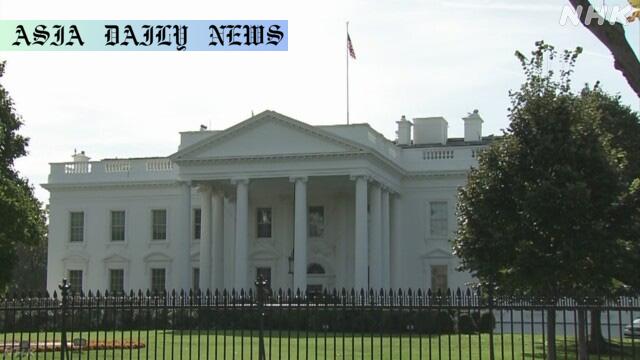Trade Talks: White House prioritizes other partners as Japan faces tariff deadline amid policy disputes.
- The Trump administration challenges Japan on rice and automobile trade policies.
- White House signals focus on other trade partners instead of Japan before July 9.
- President Trump hints at potential tariff increases on Japanese auto imports.
- Japan is urged to reconsider policies to avoid further trade friction.

The Shift in US-Japan Trade Negotiations
The dynamic of trade relations between the United States and Japan has shifted significantly in recent weeks. Following President Trump’s remarks regarding Japan’s trade policies, especially concerning rice imports and the trading of automobiles, it has become clear that resolving these issues is critical to the administration’s economic agenda. However, a warning from a White House official confirmed a potential pivot toward other trading partners if Japan remains unyielding. This revelation comes as the July 9 deadline for tariff negotiations looms, underscoring mounting tensions in what should be a constructive bilateral relationship.
Disputes Over Rice Imports
One of the key points of contention is rice trade. President Trump has openly criticized Japan’s policies, highlighting the restrictive nature of its rice import practices. In his social media posts, he emphasized his frustration with Japan’s refusal to “take our RICE.” This issue symbolizes broader issues in trade negotiations where agricultural policies remain a sensitive topic. Japan’s rice market, heavily shielded by tariffs and import restrictions, remains a sticking point that might lead to serious consequences for bilateral economic ties if left unresolved.
Automobile Trade: A Major Friction Point
Another major aspect of the trade conflict lies in the automobile trade. President Trump has consistently expressed dissatisfaction with Japan’s low import rates for American automobiles. During a Fox News interview, he hinted at potential repercussions such as imposing a 25 percent tariff on Japanese car imports. This strong stance against what the administration perceived as unfair trade balances intensifies the existing strain on trade and manufacturing ties, given the significant economic contribution of the auto industry in the US.
Impending July 9 Tariff Deadline
The timing of this trade standoff is critical. With a tariff negotiation deadline set for July 9, both nations face mounting pressure to resolve disagreements. While the US administration hints at prioritizing other trading partners, Japan now faces a critical choice. A refusal to amend its policies could pave the way for damaging tariffs, potentially destabilizing not only bilateral trade but also impacting global markets. Stakeholders on both sides hope for diplomatic compromise before tensions escalate further.
Impact on US Diplomatic Strategy
Shifting focus to other trading partners also signals a strategic move by the Trump administration to exert leverage. With upcoming agreements and partnerships in sight, the lack of progress in talks with Japan provides an opportunity for the US to strengthen ties elsewhere. Global trade dynamics will inevitably influence these negotiations, but the shift could also reflect an attempt to push Japan toward a more conciliatory stance for fear of being left behind in future trade developments.
A Call for Policy Reconsideration
Trade experts suggest this conflict could have lasting repercussions if not addressed carefully. The specific policies Japan has in place, whether in agriculture or its auto industry regulations, represent long-standing economic interests rooted deeply in Japanese domestic politics. Thus, changing these policies to accommodate US demands would require balancing international trade requirements with domestic concerns, a delicate yet critical task.
Looking Ahead
As July 9 draws near and the stakes remain high, the potential scenarios range from diplomatic breakthroughs to harsher economic measures. The US administration remains vocal and firm on its demands, while Japan appears steadfast in upholding its trade policies. A middle ground seems elusive for now, but cooperation can pave the way for more sustainable economic relations in the future. Global observers eagerly await the next steps in this complex narrative of modern trade diplomacy.



Commentary
The Complexity of US-Japan Trade Relations
The unfolding trade dynamics between the United States and Japan signify more than just policy disputes; they underscore the complexity of modern international relations and economic interdependence. The recent statements from the White House point to a strategy aimed at emphasizing strength and shifting the focus to other trading partners. However, one must question whether this tough approach will yield the desired results or lead to heightened tensions.
Why Rice and Automobile Trade Matter
The issues surrounding rice and automobile trade highlight deeper concerns about how protective policies can hinder open markets. For decades, Japan’s protective stance on its agricultural industry has been a point of contention for trading partners. Similarly, the disparity in automobile trade reflects structural differences in market preferences, accessibility, and perhaps even subtle protectionism. Achieving fairness in these areas is essential, but it requires both patience and mutual understanding to bridge the gap between national priorities and global demands.
Economic Impact and Potential Outcomes
Imposing additional tariffs, as President Trump hinted, could have significant ramifications, not just for Japan but for the global economy. The intertwined nature of supply chains means that aggressive barriers often result in unintended consequences extending far beyond the nations involved. For US farmers and carmakers, fair trade practices could open beneficial markets, yet further isolation and friction might undermine long-term relationships, hurting businesses on both sides.
The Path Forward
While the US administration’s resolve to address perceived injustices is commendable, pursuing diplomacy over aggression would yield better, more sustainable results. Trade negotiations must focus not only on achieving immediate victories but also on building frameworks for enduring partnerships. For Japan, opening up its markets strategically, without compromising its domestic stability, is the challenge ahead. For the US, fostering trust and respect in negotiations will be key. Ultimately, both nations must recognize that constructive dialogue, not confrontation, will secure prosperity in an interconnected economic landscape.